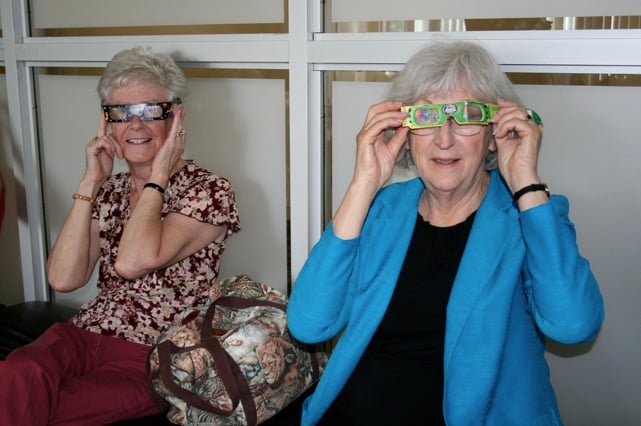You have /5 articles left.
Sign up for a free account or log in.
Michelle Lavery is currently in hot pursuit of a MSc in Biology at the University of New Brunswick, and has spent many Christmases confusing her family with her research. You can find her on Twitter and Tumblr.

“You do not really understand something unless you can explain it to your grandmother.”
No matter whether Albert Einstein, Richard Feynman, or Ernest Rutherford said it, the sentiment above rings true for researchers in all disciplines from particle physics to ecopsychology. We’ve all been at that Thanksgiving dinner, with those misguided questions and blank stares. However, becoming able to communicate your research to your grandparents has many benefits beyond the dinner table.
Explaining your research can be difficult, especially when your daily life revolves around its miniscule details. But before we start making excuses for ourselves, Erin Bedford has some great tips that are worth a read before your next conversation with Grandma. Erin suggests that we start with why we’re doing our research instead of what we’re doing, that we keep it simple, and that we make our research relatable to our audiences. This is great for Christmas dinner, but Erin’s advice also represents three ideas that we should be revisiting throughout our graduate careers.
Finding Meaning
Being able to find the meaning behind your research is incredibly important. No matter what your project is, there must be a reason you’ve chosen to do it. Your uncle won’t care if you study cell membrane proteins; however, he’ll be proud as punch when he finds out that you’re helping develop treatments for HIV. Similarly, funding institutions and scholarship committees will be more likely to give grants to projects with clear benefits to society or intriguing implications. Media outlets tend to publicize research that tells an interesting story, and industry usually partners with research endeavors that might apply to their mission. Communicating the meaning behind your project is vital for its success, especially in the preliminary stages.
Delving deep into your project to find meaning can put your work in perspective for outside audiences, but it can also guide the development of your research questions or bring you new motivation. Reminding yourself of why your research is important might bring you out of a lull or draw you back from an unrelated tangent. Knowing that your work has meaning is one of the best motivators out there!
Keeping It Simple
It’s easy to get lost in the literature by tying yourself in knots and thinking in circles. Overthinking comes naturally to researchers—we’re constantly trying to cover all the bases and defend against the next snag or nasty review. However, being able to distill your research into a family reunion-friendly spiel is an important skill, and requires you to take a hard look at your project. Removing the jargon “crutch” when re-examining your work forces you to ask the questions that you should be asking yourself regularly—and the answers you come up with might bring you out of denial or reveal areas that require improved understanding. Regular examination of your work can also offer you opportunities to change direction or simplify overly complicated research questions, hypotheses, protocols, etc. Finally, developing an “elevator pitch” for your research can also come in handy at conferences and meetings, where you need to communicate as clearly and quickly as possible.
Making It Relatable
By coming up with ways to make your research relevant to your brother-in-law, you can also enhance your own understanding. Maybe he’s in business, so you can relate your work on growth and reproduction tradeoffs to investment strategies. Perhaps your electrical engineering research can be best explained with comparisons to water flowing through pipes. The best explanations often involve some kind of everyday-life analogy, and coming up with these can help you clarify your own understanding further. Making connections like these is vital for effective communication, particularly if you plan to publicize your research at some point. The general public is far more likely to grasp abstract concepts if they can relate to some aspect of them, and an accurate analogy can eliminate confusion and unintentional inaccuracies.
When you can communicate your research as a relatable concept with applicable meaning and a straightforward design, you’ll be well on your way to a stellar dissertation. You will have had to ask yourself tough questions, and the limits of your understanding will have been tested. Oh, and your grandparents will finally know what you do at grad school.
Give your grandmother a call today and see if you can explain your research to her—at the very least, she’ll be happy to hear your voice. Leave any hilarity that ensues in the comments below!
[Image by flickr user Christine Urias and used under Creative Commons licensing.]




